
Even if you’ve never opened a philosophy book, you’ll likely find quotes from great philosophers transformative and inspiring. Why? Philosophy has 2 definitions: one as a field of study, and one as “a theory or attitude that acts as a guiding principle for behavior.” In layman’s terms, any rule or idea that helps you make decisions and move forward with your life is philosophy! So, whether you want to brush up on your philosophy knowledge or simply find some powerful, encouraging words, today’s list of the best philosophy quotes of all time will be right up your alley!
At Four Minute Books, we’ve summarized over 1,000 books, including many philosophy classics and modern bestsellers on the topic. As part of this journey, we’ve not only discovered the top philosophy titles. We also made our own highlights and took notes along the way.
In this organized list, we’ll share with you the 14 most famous philosophy quotes from some of history’s first philosophers. You’ll also discover 20 of the top ideas from modern-age philosophers (post-15th century). To round things out, we’ve included 10 quotes from ancient Stoics, since Stoicism is our favorite philosophy here at Four Minute Books. All quotes come with sources, of course, in a dedicated section. Finally, you’ll see where you can find more great philosophy quotes, get some sharing images for social media, and even a little primer on what philosophy is and what the most popular and well-known philosophies are.
The easiest way to navigate this list is to use the clickable table of contents below. Jump to whichever section seems most interesting with a single tap! If you want to share any quote on this list, simply highlight it. Several sharing options will appear. Or, you can skip to the social media section towards the end with custom images we’ve already made for you.
Here are the 44 best philosophy quotes of all time!
Table of Contents
- The 14 Most Important Philosophy Quotes From Ancient Philosophers
- The 20 Most Famous Philosophy Quotes From Modern Philosophers
- 10 Philosophy Quotes About Stoicism From the Earliest & Most Famous Stoics
- Bonus: 4 Thought-Provoking Quotes From People You Didn’t Even Know Were Philosophers
- Sources
- More Philosophy Quotes
- The 30 Best Philosophy Quotes for Sharing on Social Media
- What Is Philosophy?
- What Are the Different Schools of Philosophy?
- Conclusion
- Other Quote Lists
The 14 Most Important Philosophy Quotes From Ancient Philosophers
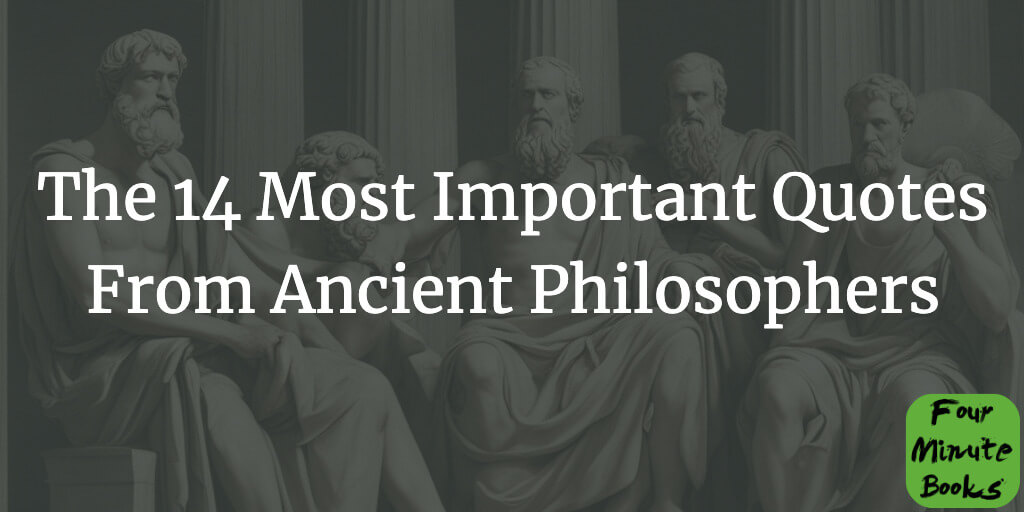
Did you know that philosophy was the original, first branch of science? Many of the other fields, from physics to chemistry to biology, and even mathematics and psychology, later split off from there. Geographically, philosophy emerged independently in 4 different areas: The West, ancient Arabia/Persia, India, and China.
Interestingly, only Western philosophy developed as a standalone discipline. In all the other areas, it was initially tied to religion. The ancient Greeks were also the first to think about how to live “the good life,” as they dubbed it. Starting as early as the 7th century BCE, Thales of Miletus, is considered to be the first philosopher.
Thankfully, a good amount of information about him and his peers survives to this date — including some of their writings. Here are 14 of the earliest, most important philosophy quotes from ancient philosophers:
1. “I know that I know nothing.” — Socrates
2. “Know thyself.” — Aristotle
3. “The heaviest penalty for declining to rule is to be ruled by someone inferior to yourself.” — Plato
4. “You could not step twice into the same river.” — Heraclitus
5. “The mind is not a vessel to be filled, but a fire to be kindled.” — Plutarch
6. “He who is not satisfied with a little, is satisfied with nothing.” — Epicurus
7. “It is better either to be silent, or to say things of more value than silence. Sooner throw a pearl at hazard than an idle or useless word; and do not say a little in many words, but a great deal in a few.” — Pythagoras
8. “Nothing exists except atoms and empty space; everything else is opinion.” — Democritus
9. “I am a citizen of the world.” — Diogenes
10. “The most difficult thing in life is to know yourself.” — Thales
11. “Set thy heart upon thy work, but never on its reward. Work not for a reward, but never cease to do thy work.” — Vyasa
12. “However many holy words you read, however many you speak, what good will they do you if you do not act on upon them?” — Buddha
13. “The journey of a thousand miles begins with a single step.” — Lao Tzu
14. “It does not matter how slowly you go as long as you do not stop.” — Confucius
The 20 Most Famous Philosophy Quotes From Modern Philosophers

Given how early philosophy began, you’d think we’d all be enlightened by now. Unfortunately, this pesky thing called “the Dark Ages” got in the way. After the fall of the Roman Empire in 476 CE, primitive forces prevailed in the West. Humans were too busy bashing each other’s heads in to practice contemplation, make art, or push civilization forward with new technology. For the most part, at least.
It would take almost 1,000 years, until the Renaissance (French for “revival”) would start blooming out of Florence, Italy. This period later bloomed into the Age of Enlightenment, which is when modern philosophy really came into its own. From René Descartes to Immanuel Kant to Francis Bacon, some of the field’s true greats lived and worked in this period.
Thanks to the invention of the printing press in 1440, many of the best ideas from this era and beyond have been preserved. Here are 20 of them, all part of the most famous philosophy quotes of all time:
15. “Cogito ergo sum. I think; therefore I am.” — René Descartes
16. “That which does not kill us makes us stronger.” — Friedrich Nietzsche
17. “Knowledge is power.” — Sir Francis Bacon
18. “Sapere aude. Dare to think.” — Immanuel Kant
19. “Man is born free, and everywhere he is in chains.” — Jean-Jacques Rousseau
20. “Workers of the world, unite!” — Karl Marx
21. “Life can only be understood backwards; but it must be lived forwards.” — Søren Kierkegaard
22. “One ought to be both feared and loved, but as it is difficult for the two to go together, it is much safer to be feared than loved, if one of the two has to be wanting.” — Niccolò Machiavelli
23. “Every man I meet is in some way my superior, and in that, I can learn of him.” — Ralph Waldo Emerson
24. “All of humanity’s problems stem from man’s inability to sit quietly in a room alone.” — Blaise Pascal
25. “Common sense is not so common.” — Voltaire
26. “In the depths of winter, I finally learned that within me there lay an invincible summer.” — Albert Camus
27. “Bad men need nothing more to compass their ends, than that good men should look on and do nothing.” — John Stuart Mill
28. “Talent hits a target no one else can hit. Genius hits a target no one else can see.” — Arthur Schopenhauer
29. “The limits of my language mean the limits of my world.” — Ludwig Wittgenstein
30. “Man is condemned to be free.” — Jean-Paul Sartre
31. “Human happiness and human satisfaction must ultimately come from within oneself.” — Dalai Lama XIV
32. “If you don’t know, the thing to do is not to get scared, but to learn.” — Ayn Rand
33. “One’s life has value so long as one attributes value to the life of others, by means of love, friendship, indignation and compassion.” — Simone de Beauvoir
34. “Beauty is no quality in things themselves: It exists merely in the mind which contemplates them; and each mind perceives a different beauty.” — David Hume
10 Philosophy Quotes About Stoicism From the Earliest & Most Famous Stoics

As you’ll find out in the explainer sections at the end of this list, philosophy is a bit like ice cream: We all have different tastes, but there’s a flavor for almost everyone. Not only can you pick from a plethora of differing philosophies, you can also adopt various theories for separate phases of your life. In fact, you can — and will probably have to — assemble the best bits from a variety of philosophies to come up with a list of guiding principles that works specifically for you.
At Four Minute Books, one of our favorite pools of philosophy to draw from is Stoicism. Why? It’s practical, pragmatic, and not overly complicated. It goes back to the original, first philosophers, and it’s a great tool set for real people, living in the real world.
Thanks to authors like Ryan Holiday, Stoicism is experiencing a revival right now. Here are 10 of the most quintessential ideas from the philosophy, sourced from 10 of the first ever Stoics (starting with Zeno, born 334 BCE, the first Stoic), sorted in order of when their originators lived:
35. “We have two ears and one mouth, so we should listen more than we speak.” — Zeno of Citium
36. “Fate guides the willing, but drags the unwilling.” — Cleanthes
37. “There could be no justice, unless there were also injustice; no courage, unless there were cowardice; no truth, unless there were falsehood.” — Chrysippus
38. “Cease to hope, and you will cease to fear.” — Hecato
39. “Let your desires be ruled by reason.” — Cicero
40. “I begin to speak only when I’m certain what I’ll say isn’t better left unsaid.” — Cato the Younger
41. “We suffer more often in imagination than in reality.” — Seneca
42. “If you accomplish something good with hard work, the labor passes quickly, but the good endures; if you do something shameful in pursuit of pleasure, the pleasure passes quickly, but the shame endures.” — Musonius Rufus
43. “Men are disturbed not by things but by the principles and notions which they form concerning things.” — Epictetus
44. “You have power over your mind — not outside events. Realize this, and you will find strength.” — Marcus Aurelius
Bonus: 4 Thought-Provoking Quotes From People You Didn’t Even Know Were Philosophers
Just as a little, fun bonus, here are 4 more quotes that will make you think. These come from unlikely philosophers, people you might not know as famous thinkers — or at all, for that matter. If you find them interesting, enjoy digging deeper into their lives and ideas via the links in the sources section!
45. “A wise man can learn more from a foolish question than a fool can learn from a wise answer.” — Bruce Lee
46. “To live is the rarest thing in the world. Most people exist, that is all.” — Oscar Wilde
47. “I know it seems hard sometimes, but remember one thing: Through every dark night, there’s a bright day after that. So no matter how hard it gets, stick your chest out, keep your head up, and handle it.” — Tupac Shakur
48. “Hard choices, easy life. Easy choices, hard life.” — Jerzy Gregorek
Sources
- Via Wikipedia. Socrates paradoxical insight, as recorded by Plato, is one of the oldest, most well-known ideas in philosophy.
- Via Wikipedia. Aristotle was probably not the first person to say this, but it is likely he did say it and thus popularized the saying. There’s another popular variant floating around the web: “Knowing yourself is the beginning of all wisdom.” That one, however, has no connection to Aristotle.
- As found in Francis Macdonald Cornford’s 1941 translation of The Republic.
- Via Wikiquote, as recorded by Plato and in surviving fragments of his writing in several variations. Some people speculate that the phrase “The only constant in life is change” goes back to this quote, but it only surfaced much later.
- Via Wikiquote, from De Auditu, a surviving essay, actually a contraction of the full, longer statement, “The correct analogy for the mind is not a vessel that needs filling, but wood that needs igniting — no more — and then it motivates one towards originality and instills the desire for truth.”
- Via Wikiquote, a surviving fragment.
- Via A Dictionary of Thoughts, a 1908 quote collection by Tryon Edwards.
- Via Lives of the Eminent Philosophers, a book by Diogenes Laërtius.
- Also via Lives of the Eminent Philosophers. The word “cosmopolitan” goes back to him. Representing the “Cynic” branch of philosophy (yet another word that goes back to him), he also once told Alexander the Great to “stand a little out of my sun.”
- Once again via Lives of the Eminent Philosophers. He is also a candidate for “Know thyself,” see #2.
- The various translations of the Bhagavad Gita usually use a different wording, but the idea stays the same: “You have a right to perform your prescribed duties, but you are not entitled to the fruits of your actions.”
- This great analysis by Fake Buddha Quotes confirms that, though the wording might be modernized, the essence of the actual quote is real: “Much though he recites the sacred texts, but acts not accordingly, that heedless man is like a cowherd who only counts the cows of others — he does not partake of the blessings of the holy life.”
- Via Stephen Mitchell’s translation of the Tao Te Ching.
- Confucius most likely originally used a metaphor to make this point, but several translations close to this line exist.
- Via Wikipedia, from his book Discourse on the Method.
- From Twilight of the Idols. The original German wording? “Was mich nicht umbringt, macht mich stärker.”
- Via Wikipedia, from his book Meditationes Sacrae. This line is such a common, proverbial saying, it’s hard to believe it can be traced back to a single person, but it can. Hats off, sir!
- Via Wikipedia, this one goes back to Kant’s essential essay Answering the Question: What is Enlightenment? Though first recorded by the ancient poet Horace in 20 BC in Latin, the phrase is inextricably linked to Kant and interpreted differently in a philosophical context. While it literally means “Dare to know,” the usually cited German variant, “Habe Mut, dich deines eigenen Verstandes zu bedienen” (“Have the courage to use your own reason”) makes more sense here.
- Via his book The Social Contract.
- Via Wikipedia, from The Communist Manifesto, a book he co-authored with Friedrich Engels.
- Via Wikiquote, from his journals and originally in Danish.
- From his famous, often misinterpreted book The Prince. For a summary, see here.
- Via Wikiquote.
- From Pensées, in some translations worded as, “All the unhappiness of men arises from one single fact, that they cannot stay quietly in their own chamber.”
- Via Wikiquote, from his Philosophical Dictionary, originally published in French.
- Via Wikiquote, from Return to Tipasa, an essay included in his book Summer.
- Via Oxford Reference, from his Inaugural Address at St Andrew’s, given in 1867.
- From The World as Will and Representation, Vol. 2, p. 391, slightly contracted from the original “Talent is like the marksman who hits a target which others cannot reach; genius is like the marksman who hits a target, as far as which others cannot even see.”
- From his seminal and only book, Tractatus Logico-Philosophicus.
- Via Wikiquote, from his book Being and Nothingness.
- Via Wikiquote, from his book The Path to Tranquility.
- As in Atlas Shrugged.
- Via Wikiquote, from her book The Coming of Age.
- From his essay Of the Standard of Taste.
- Via Lives of the Eminent Philosophers by Diogenes Laërtius.
- From Epictetus’ Enchiridion. Various translations exist, such as: “O Destiny, wherever your decrees have fixed my station, I follow cheerfully; and, did I not, wicked and wretched, I must follow still.”
- Via New World Encyclopedia.
- As quoted by Seneca in his 5th Moral Letter to Lucilius.
- As written in his book De Officiis (On Duties).
- Quoted by Plutarch in Parallel Lives.
- From his 13th Moral Letter to Lucilius.
- A surviving fragment.
- As found in his book Enchiridion.
- Supposedly from Meditations, this might be the most popular Marcus Aurelius quote, but it is hard to track down. Though several similar sentiments appear in Meditations, it is possible that it is from an older, lost translation, since there are so many different versions of the book.
- In a collection of his notes called Striking Thoughts. For more Bruce Lee quotes, see here.
- From The Soul of Man Under Socialism. More than a playwright and socialite, Wilde reflected deeply on life, especially after being imprisoned for “gross indecency with men.” Homosexual acts, even when consensual, were illegal at the time.
- Lyrics from Me Against the World. Shakur, too, turned to philosophy while in prison.
- As cited by Tim Ferriss in his TED talk. You wouldn’t expect a lot of philosophy and poetry from a 4x weightlifting world champion and world record holder, but Jerzy is as thoughtful as he is fit.
More Philosophy Quotes
If you want more quotes about philosophy, we have several great starting points for you. The best, of course, is to get your wisdom straight from the source. Instead of recommending just one specific book, however, we suggest you look at some of the top philosophy titles, then pick the one that seems most interesting to you. To that end, our snazzy PDF of the 7 best philosophy books ever might help! You can download it below.
If you want to look at a wider selection of philosophy books, dive deeper into quotes of a specific philosophy, or learn more from a particular author, here are some other resources we’ve prepared for you and the next stage in your learning journey.
More Philosophy Books
- The 35 Best Philosophy Books to Live Better and Become a Great Thinker
- The 33 Best Self-Help Books of All Time to Read at Any Age
- The 30 Most Life-Changing Books That Will Shift Your Perspective & Stay With You Forever
- The 12 Best Nonfiction Books Most People Have Never Heard Of
- The 31 Best Motivational Books Ever Written
- The 7 Best Inspirational Books That Will Light Your Inner Fire
More Philosophical Quote Lists
- The 365 Most Famous Quotes of All Time (in 27 Categories, Backed by Data & With Real Sources)
- The 44 Best & Most Important Stoic Quotes From Seneca, Marcus Aurelius & Co.
- The 44 Best & Most Important Quotes From Marcus Aurelius
- The 33 Best, Most Important, and Most Inspiring Quotes From Bruce Lee
- The 45 Best Brené Brown Quotes About Courage, Shame & Vulnerability
More Philosophy Authors
- Jordan Peterson Books: All Titles in Order of Publication + The 5 Top Books He Recommends
- Ryan Holiday Books, Sorted Chronologically (and by Popularity)
- Robert Greene Books, Sorted Chronologically (and by Popularity)
- Brené Brown Books, Sorted Chronologically (and by Popularity)
Whichever of these intuitively draws you in, just tap away and keep learning!
The 30 Best Philosophy Quotes for Sharing on Social Media
If you want to share the quotes on our list, you can use the “highlight and share” feature, of course. However, we’ve also made some custom images just for you. All you have to do is tap and share! Some of them, we’ve optimized for Facebook, Twitter, and LinkedIn. Others are in Instagram’s old-school, square format. Finally, we have some for Pinterest’s vertical layout, too. Then again, nowadays, most formats work on most platforms.
Since none of the famous philosophers on this list dwell among us any longer, and most, if not all, of their works have entered the public domain, we decided to get creative with the background images for our quote images. We used the AI Stable Diffusion XL to make cool paintings, statues, and even group pictures of these world-famous philosophers. Hopefully, that’ll help bring their words to life for you and your friends. Happy sharing!
Oh, and if you want a ZIP-file of all quote images, including all backgrounds (and plenty of bonus, unused ones), you can download that here.
Share on Facebook, Twitter, and LinkedIn
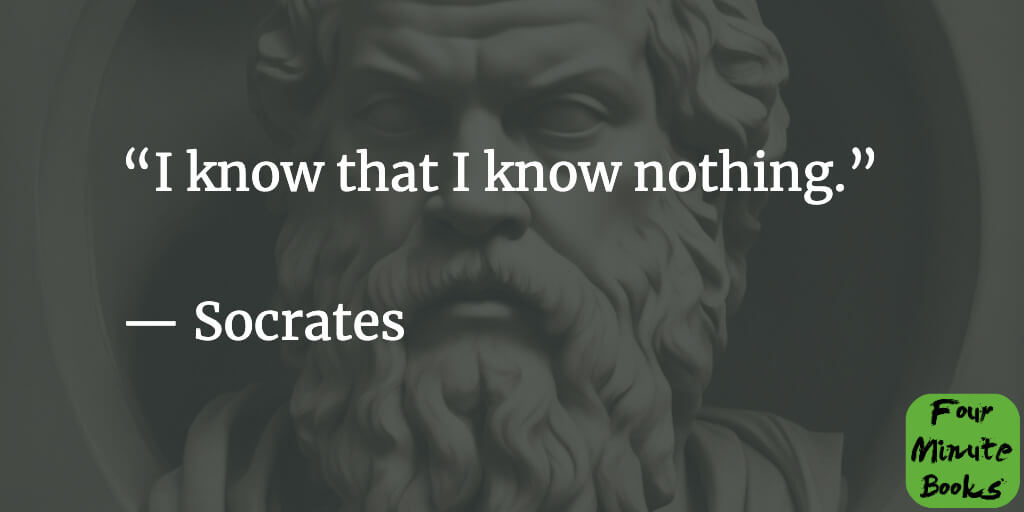
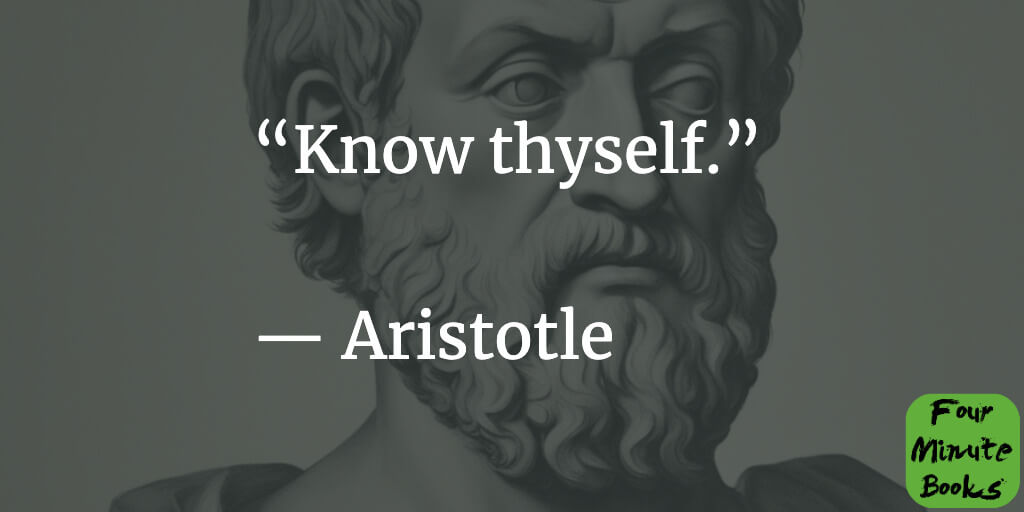
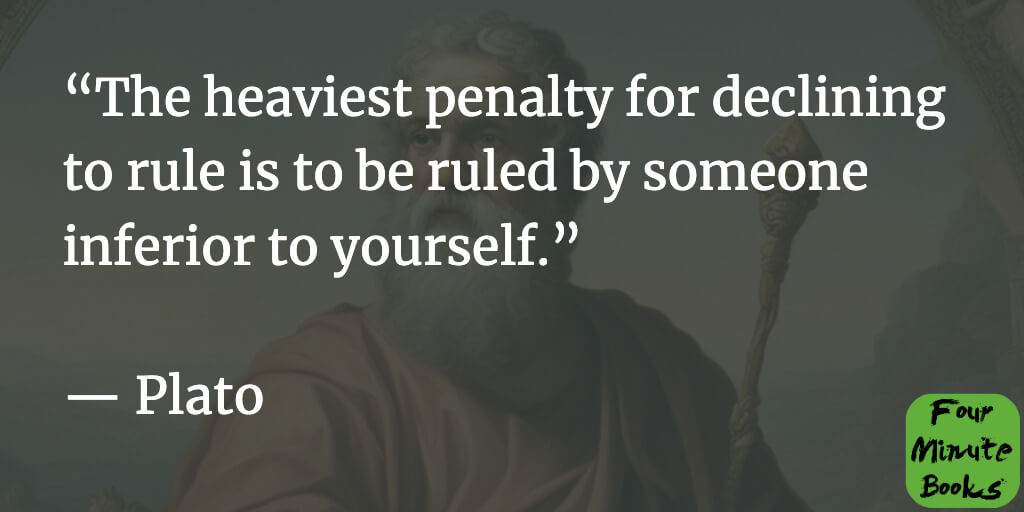
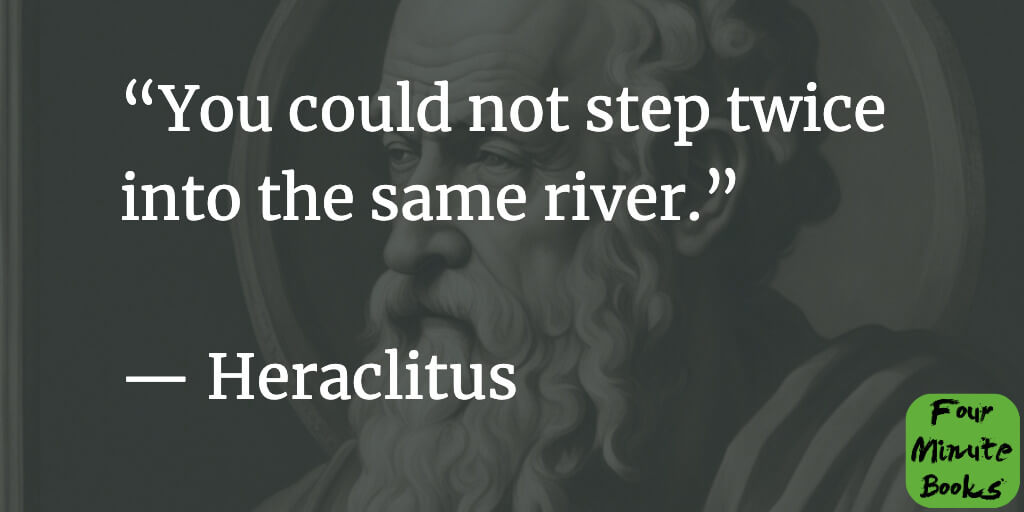



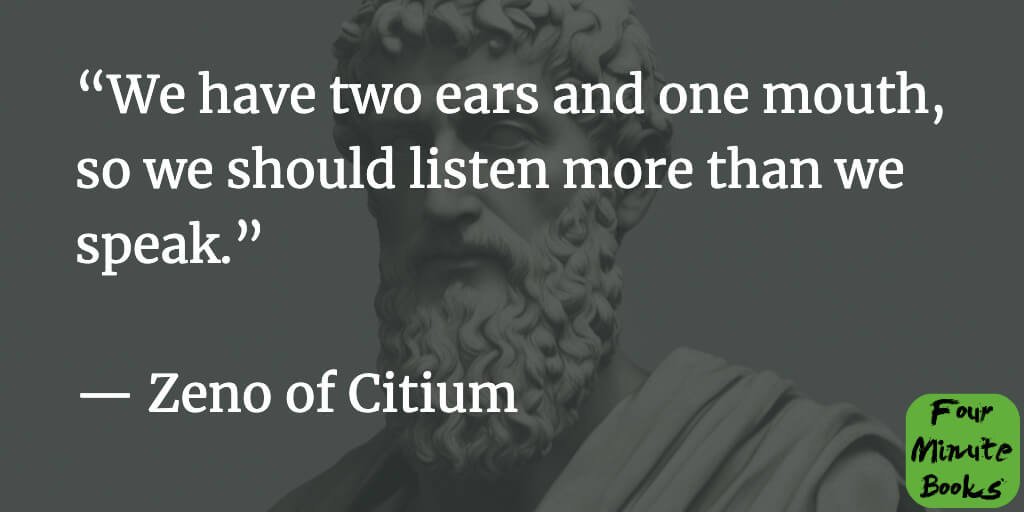
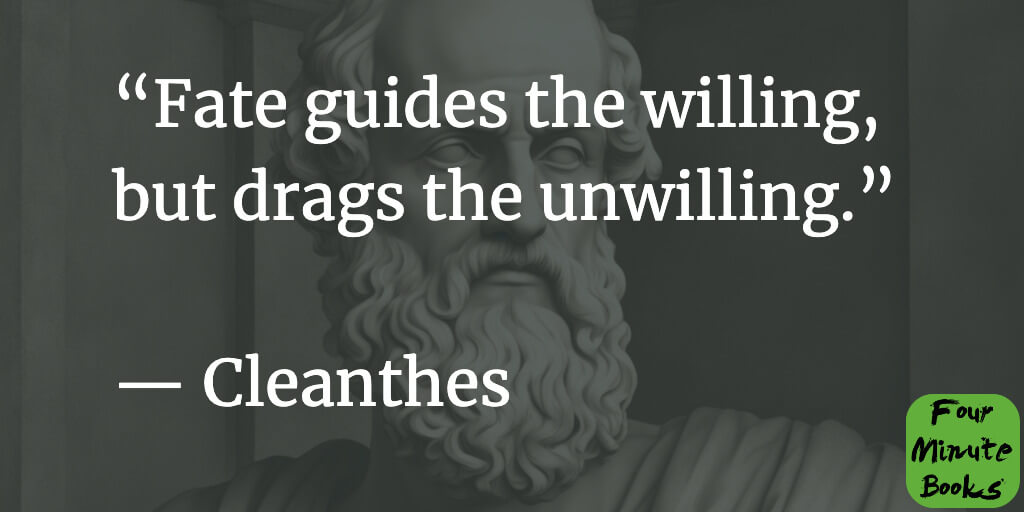
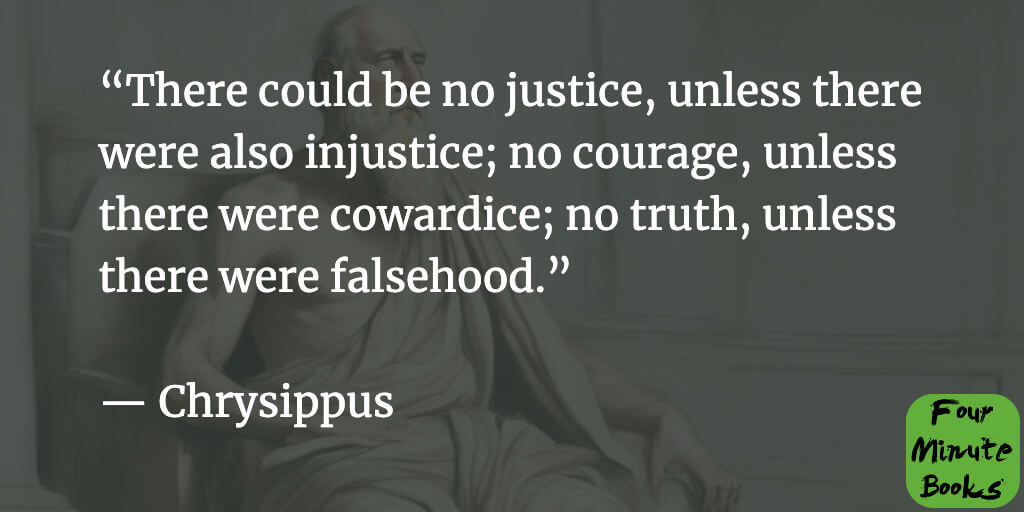
Share on Instagram
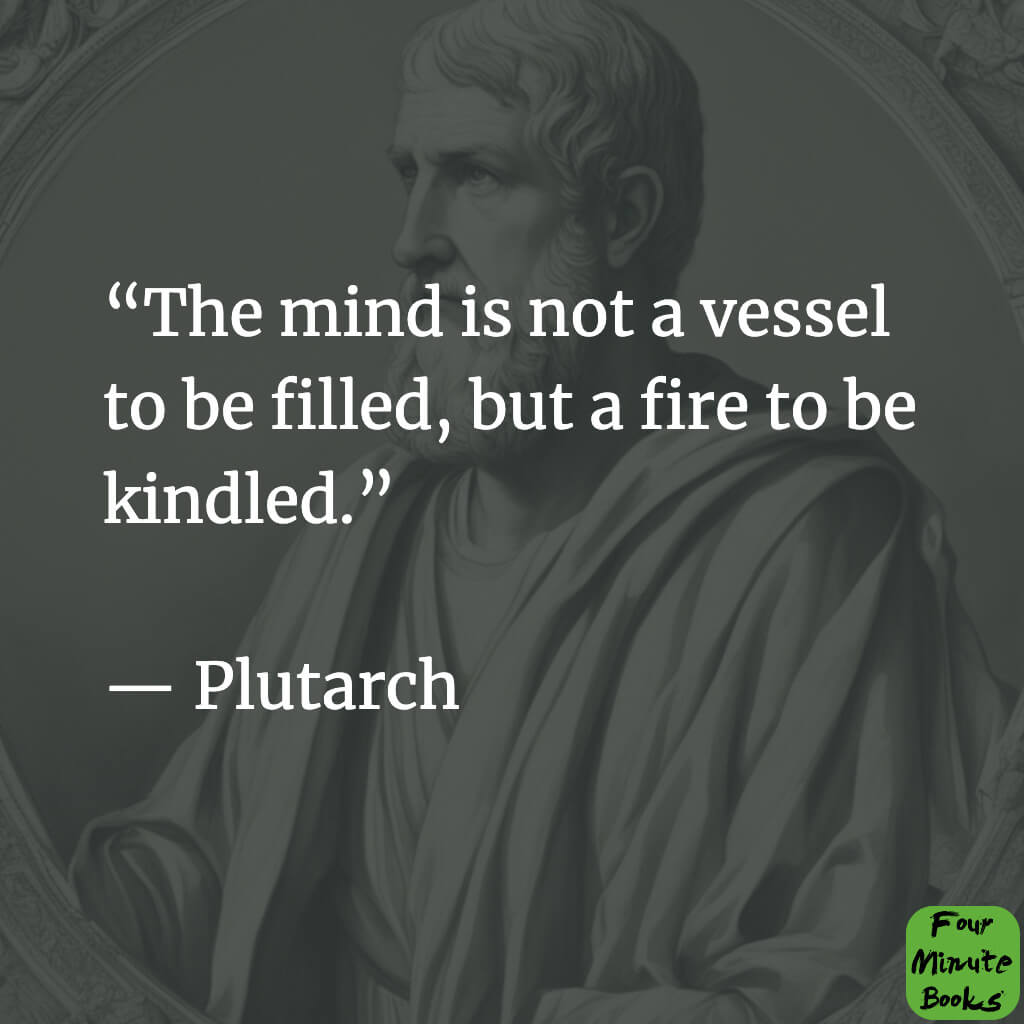
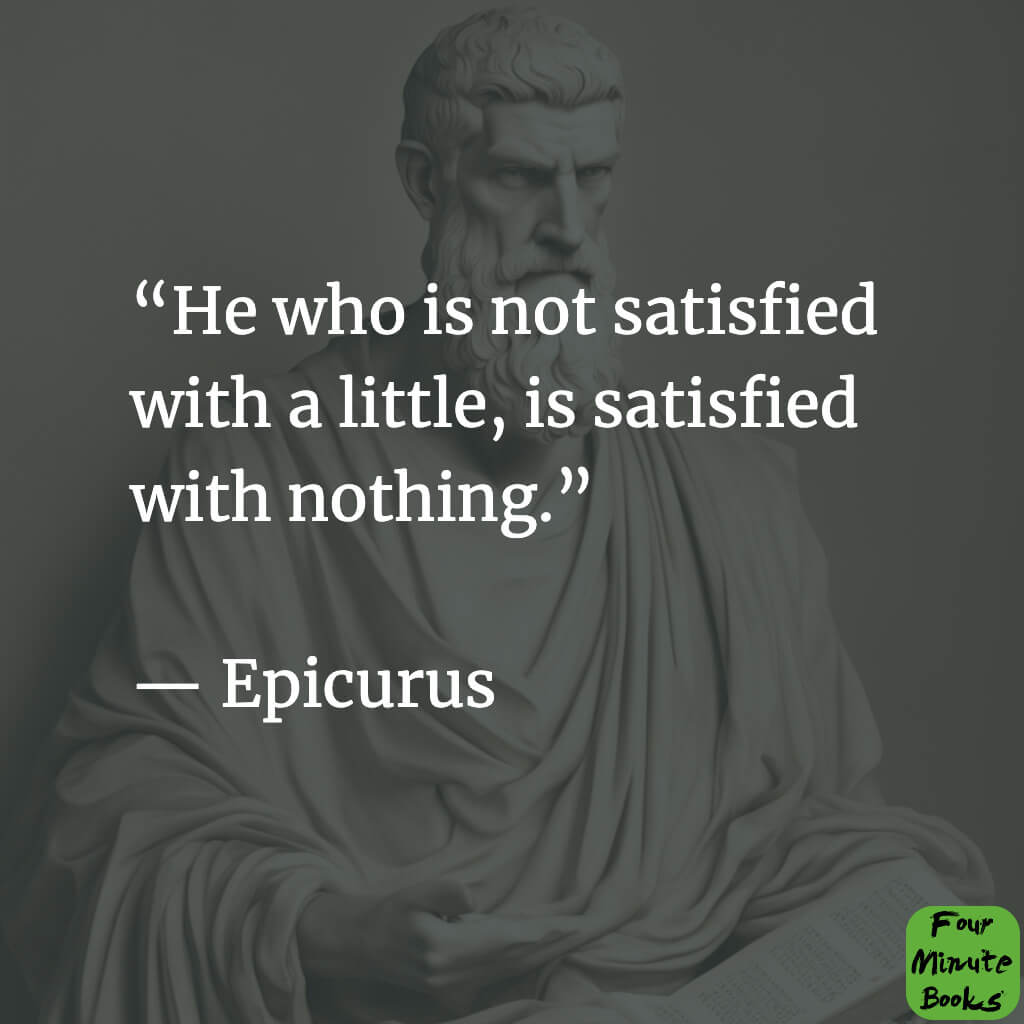
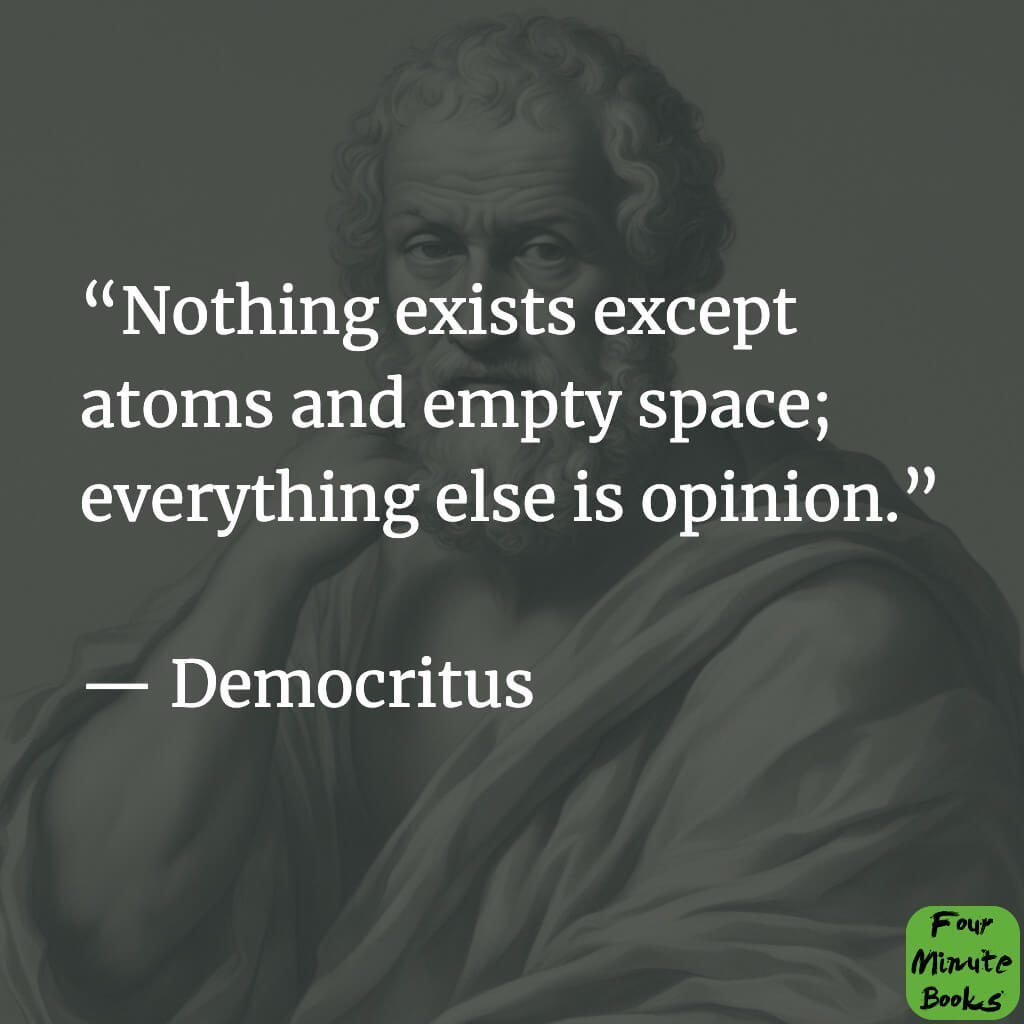







Share on Pinterest
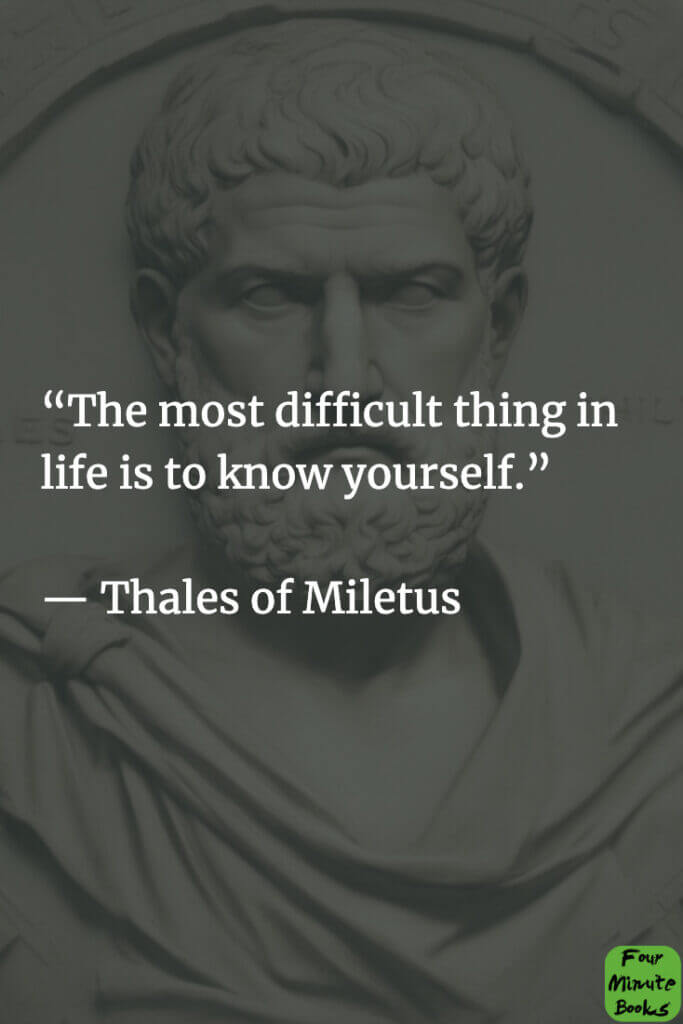


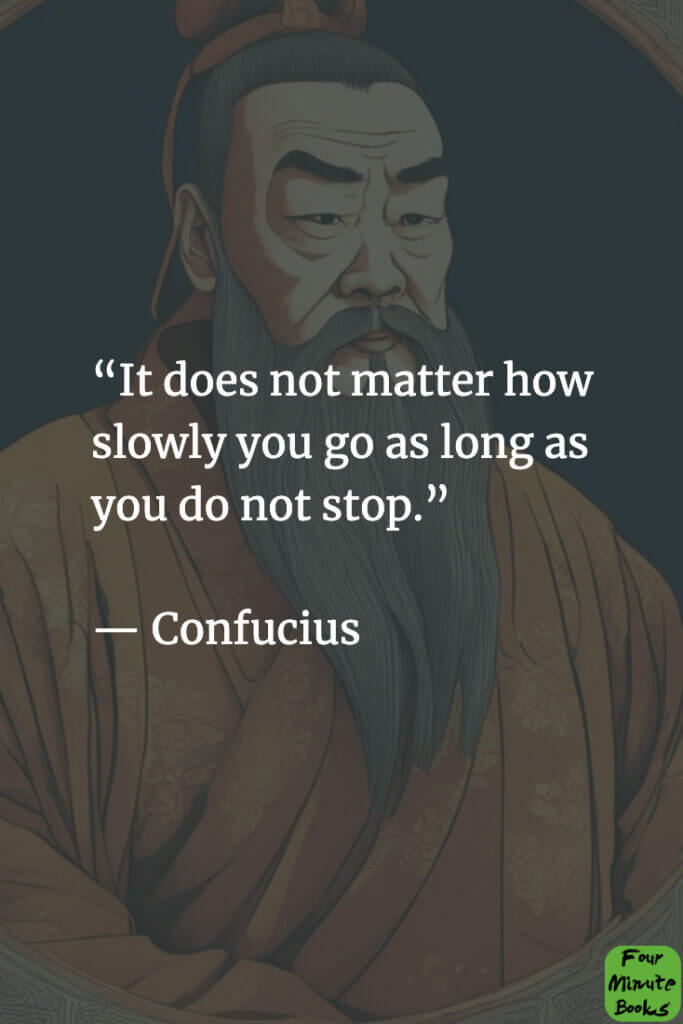


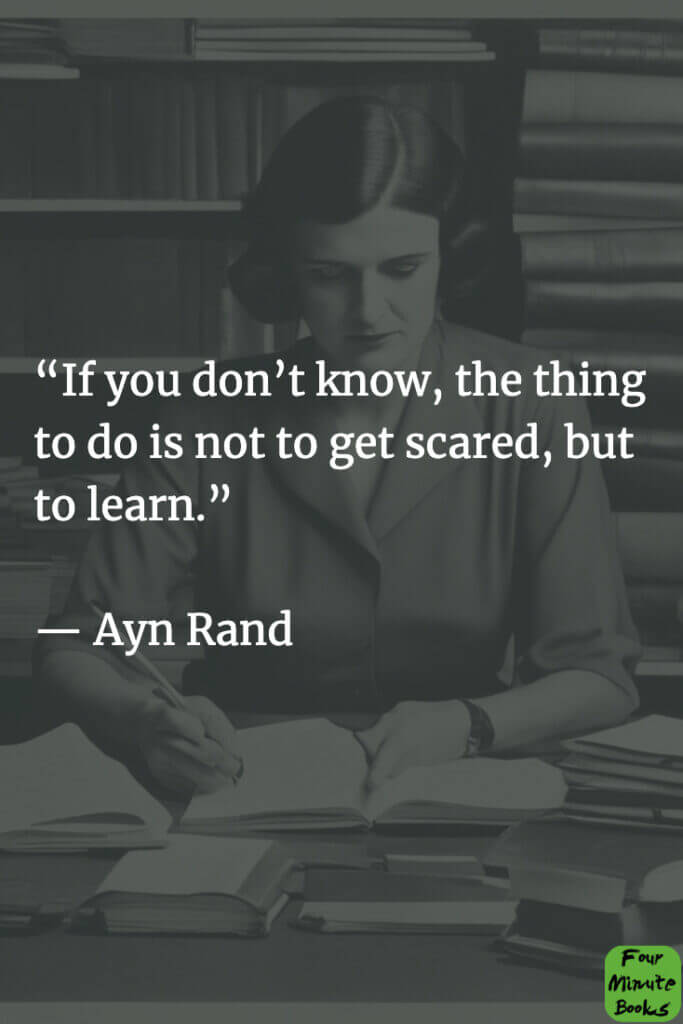
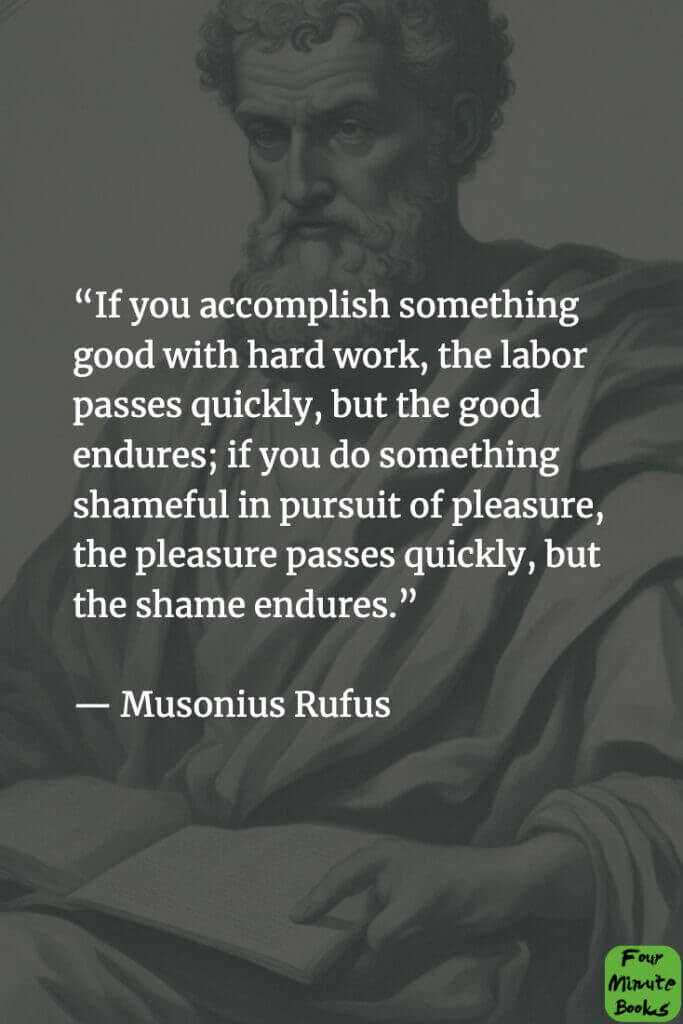
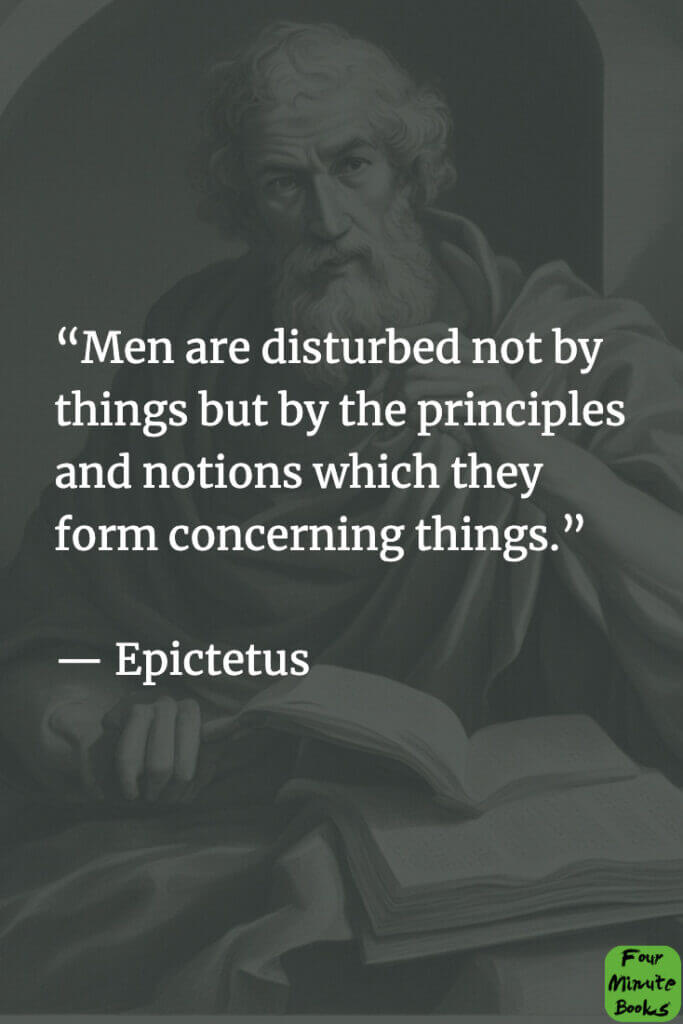
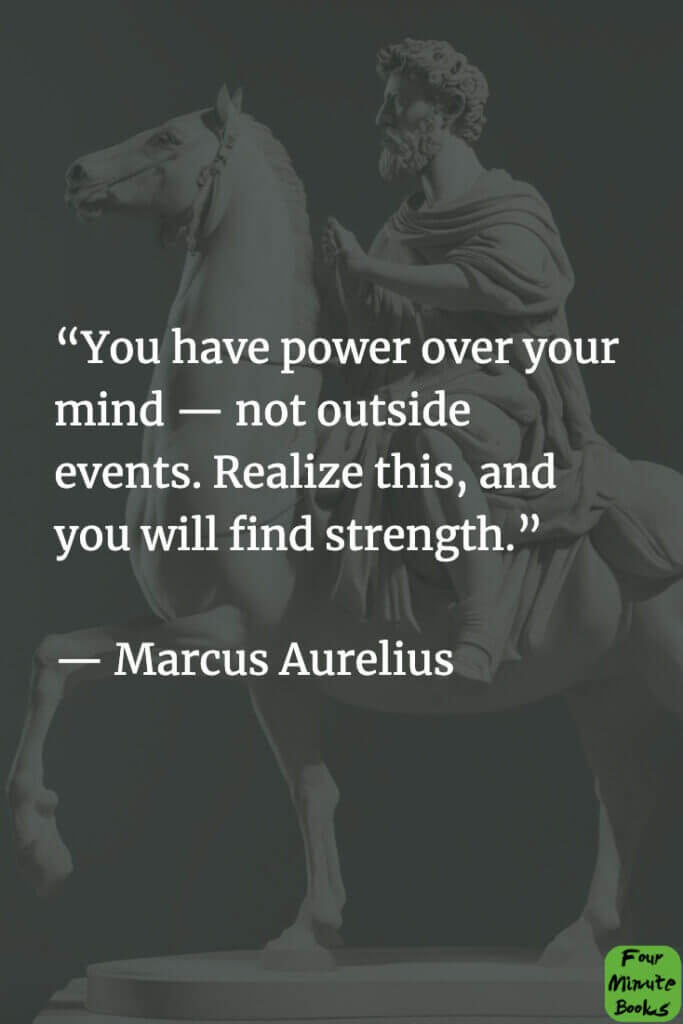
What Is Philosophy?
Growing up, I associated philosophy with old men sitting in dusty libraries, trying to decipher ancient texts in extinct languages. I think most people do. That’s because the first definition of philosophy you find in the Oxford Dictionary suggests it is “the study of the fundamental nature of knowledge, reality, and existence, especially when considered as an academic discipline.”
This academic discipline, however, has its roots in the second, much more important definition of philosophy: “a theory or attitude that acts as a guiding principle for behavior.” This is why the first philosophers even began studying knowledge, reality, and existence. Without their desire to lead better lives, the entire academic field of philosophy wouldn’t even exist!
In other words, philosophy is any concept, rule, or idea that helps you make decisions, adjust your behavior, and move forward in life.
All the theoretical talk about reason, values, reality, and language comes later. First and foremost, philosophy is about how to live a good life, right here, right now.
With that established, we can argue about what “good” means — and that’s where philosophical discourse begins. In the earliest days of philosophy, for example, some of the various camps included the Stoics, the Cynics, the Epicureans, and the Hedonists. Not unlike political parties, the first two disagreed with the latter two on what constitutes “a good life,” and even while the individual pairings agreed on the goal, they, too, disagreed on how to get there.
Since philosophy is a worldview, a way of life, there is no right or wrong, and there can be as many variations of it as there are people on this Earth.
Not smoking is a philosophy. Exercising three times a week is a philosophy. Bootstrapping your business is a philosophy. Whatever totality of rules and principles makes up your worldview, that is your philosophy. So while we can study different branches, at the end of the day, our own philosophy will be completely unique to us.
Philosophy is about finding a strong set of guiding principles and adjusting it to our own, modern, everyday life. Then, we must continuously update those principles as we go along and try to make the best choices we can in order to live up to the values we have chosen. That is philosophy, and that’s why “philosophizing” is one of the best ways we can spend our time.
What Are the Different Schools of Philosophy?
Remember the ice cream analogy from the Stoic quotes section? Since people commonly disagree about which values are the best to aspire to, and which rules will us best live in accordance with them, many different schools of philosophy have formed over the centuries.
As a result, you and I can choose whatever flavor we like best! Some people prefer hedonism, which is rich and luxurious, like chocolate, while others enjoy Taoism, which is smooth and easygoing, like yogurt. Of course, as in any good ice cream shop, you can also mix and match flavors! You can add a bit of lemon with a big scoop of vanilla and only a dash of almond, or go all-in on three scoops of banana.
Wikipedia has two lists totaling several hundred different philosophies, so there is no shortage to choose from, be it to adopt a single, convincing philosophy wholesale or piece together your own from many sources.
While it might be tempting to just jump into the first philosophy that seems attractive to you at first sight, we highly recommend learning about a few different ones, then deciding. Chances are, you’ll have to change your philosophy many times throughout your life, and the more options you are equipped with, the better you can react to any shift in your personal circumstances.
Then again, with so many schools of philosophy out there, you don’t want to overwhelm yourself either. Here are 21 of the historically most important philosophies, each with a link to learn more about it. Take a look at a handful of them, then decide if and where you’d like to dive deeper.
- Cynicism, one of the earliest philosophies, postulates we should “live naturally,” meaning without possessions, free from obligations, and with as little as we need.
- Stoicism grew out of cynicism but was more practical, suggesting we should live virtuous lives, enjoy but not crave pleasure, and become indifferent to suffering.
- Hedonism opposes cynicism, seeking to maximize pleasure and minimize pain, be it through sensual pleasures or by helping others.
- Epicureanism is a less extreme form of hedonism with a stronger focus on helping others, a simple life, and moderate but sustainable pleasure.
- Skepticism questions knowledge in various fields and sometimes even the idea that we can know anything for sure itself.
- Nihilism claims life is inherently meaningless and that nothing has value, so it doesn’t matter what we do at all.
- Absurdism proposes life is absurd and the universe is irrational, and that we are in conflict with these forces. This is our main struggle as humans.
- Existentialism tries to fix nihilism by offering various ways of creating our own “meaning of life.”
- Realism believes that various objects and ideas exist independently of our ability to perceive them.
- Relativism suggests nothing in life is absolute and that things and situations depend on “the eye of the beholder.”
- Pragmatism concerns itself less with thought and more with action, saying philosophy itself is most useful when practically applied to the real world.
- Rationalism claims all knowledge comes from reasoning, and that thinking should be one of our primary activities.
- Positivism holds the opposite belief, namely that all knowledge must come from evidence.
- Empiricism wants to see evidence one can perceive with his own 5 senses before it agrees to anything.
- Determinism rejects free will, asserting everything that happens has a prior, predetermined cause.
- Marxism criticizes capitalism and offers alternative solutions for a productive society.
- Objectivism, created by Ayn Rand, sees humans as heroes of reason with happiness as their main goal and “productive achievement” as their means of attaining it.
- Utilitarianism suggests we should aim to maximize the happiness and wellbeing of as many people as we can.
- Buddhism sees desire as the primary cause of suffering and hopes to cure it with meditation.
- Confucianism admonishes us to behave well, listen to our seniors and superiors, prioritize our families, and thus live ethically.
- Taoism is a “go with the flow” philosophy, calling on us to be humble, frugal, and spontaneous.
As you can see, many philosophies directly oppose one another. Some are less extreme versions of others. Finally, some blend different ideas together. Learn more about the ones that fascinate you the most, then decide for yourself which most align with your personal goals and values.
Conclusion
That’s it for our list of the best philosophy quotes of all time. Do you have a favorite? Think we missed an important one? Let us know on Twitter. We’re always glad to receive feedback and improve our work. Hope you learned something new today, and until next time!
Other Quote Lists
Looking for more quotes from interesting people and lines from great books? Here are all quote lists we’ve hand-selected for you so far:
- The 30 Best & Most Popular Yoda Quotes
- The Catcher in the Rye Quotes: The 44 Best & Most Important Quotes From J. D. Salinger’s Masterpiece
- The 44 Best & Most Important Stoic Quotes From Seneca, Marcus Aurelius & Co.
- 414 Short Inspirational Quotes to Motivate You Right Now (2024)
- The 44 Most Famous & Thought-Provoking Philosophy Quotes From History’s Greatest Philosophers
- The 44 Best & Most Important Quotes From Marcus Aurelius
- The 365 Most Famous Quotes of All Time (in 27 Categories, Backed by Data & With Real Sources)
- The 30 Smartest, Funniest, and Most Inspiring Elon Musk Quotes
- The 21 Best & Most Underrated Dumbledore Quotes
- The 33 Best, Most Important, and Most Inspiring Quotes From Bruce Lee
- The 45 Best Brené Brown Quotes About Courage, Shame & Vulnerability
- Brave New World Quotes: The 50 Best & Most Important Lines From Aldous Huxley’s Masterpiece
- The 33 Best, Most Popular, and Most Inspiring Albert Einstein Quotes
- 1984 Quotes: The 30 Best & Most Important Lines From George Orwell’s Masterpiece
Last Updated on September 20, 2023